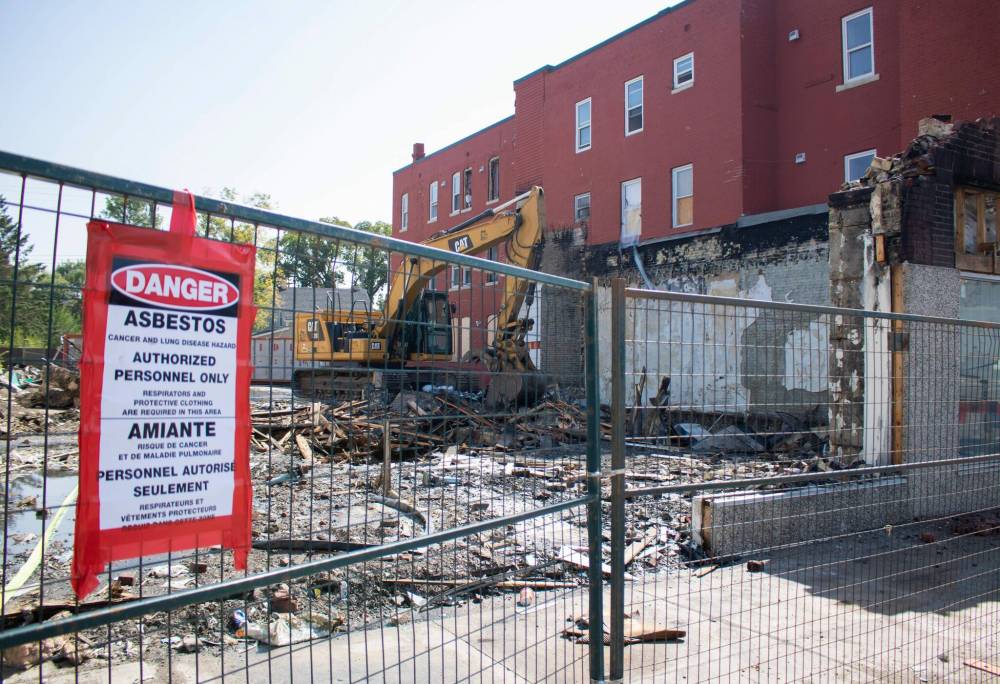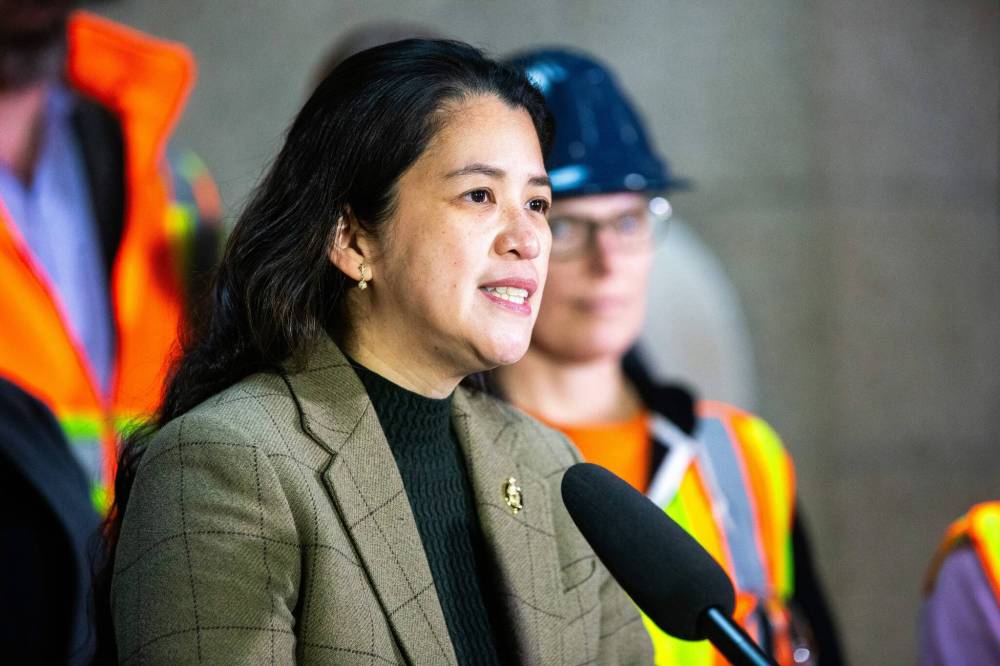Province to mandate asbestos standards
Targets cause of majority of workplace deaths in Manitoba
Advertisement
Read this article for free:
or
Already have an account? Log in here »
To continue reading, please subscribe:
Monthly Digital Subscription
$0 for the first 4 weeks*
- Enjoy unlimited reading on winnipegfreepress.com
- Read the E-Edition, our digital replica newspaper
- Access News Break, our award-winning app
- Play interactive puzzles
*No charge for 4 weeks then price increases to the regular rate of $19.95 plus GST every four weeks. Offer available to new and qualified returning subscribers only. Cancel any time.
Monthly Digital Subscription
$4.99/week*
- Enjoy unlimited reading on winnipegfreepress.com
- Read the E-Edition, our digital replica newspaper
- Access News Break, our award-winning app
- Play interactive puzzles
*Billed as $19.95 plus GST every four weeks. Cancel any time.
To continue reading, please subscribe:
Add Free Press access to your Brandon Sun subscription for only an additional
$1 for the first 4 weeks*
*Your next subscription payment will increase by $1.00 and you will be charged $16.99 plus GST for four weeks. After four weeks, your payment will increase to $23.99 plus GST every four weeks.
Read unlimited articles for free today:
or
Already have an account? Log in here »
Manitoba expects to mandate standards for working with asbestos, the cause of the majority of workplace deaths in the province, this fall.
Labour Minister Malaya Marcelino said members of the construction sector received a letter in June informing them regulations were being developed.
“We’re hoping that by October, we’ll have those regulations published and then there is a two-year transition period… so that folks can get trained up, get certified. There’ll be a public registry where people can be listed who (have) been trained and are certified to work with asbestos,” Marcelino told the Free Press.

While Manitoba’s Health and Safety Act requires employers to ensure workers are “provided information, instruction and training” on asbestos, it lacks specifics. It is up to employers to determine what is sufficient training. In addition, SAFE Work Manitoba’s 30-hour training program on safe asbestos work is voluntary.
A committee of industry and labour experts, which was set up by the provincial government in 2023 to review the Workplace Health and Safety Act, published its recommendation in January. The committee called for Manitoba to establish a mandatory standard for asbestos remediation and removal that mirrors the SAFE Work Manitoba program.
While there are federal asbestos guidelines, British Columbia was the first province to establish mandatory asbestos training standards in 2024.

Asbestos was widely used in construction projects before its carcinogenic properties were known. When microscopic fibres from asbestos are released during demolition or construction, it can get trapped in the lungs and eventually cause severe health problems, including cancer. It was banned in most Canadian products in 2018.
Symptoms typically don’t occur until years after the exposure and can worsen with prolonged contact.
Six people in Manitoba die as a result of asbestos exposure every year.
Labour advocates have long called for a set of regulations, to be enforced by the province, to ensure people who work in asbestos remediation or abatement are properly trained on safe practices.
“We’re very frustrated. We really hoped that (a timeline) would be in place before the construction season, and that’s clearly not going to be the case,” said Anna Rothney, executive director of the Manitoba Federation of Labour.
“But from our perspective, all the work’s been done to develop the standards, all the stakeholders have been brought on board with it, there’s a strong legislative review recommendation, saying, ‘Do this.’ The work is done, the policy work is done. The training is developed. Everybody’s on board. This is an idea whose time has come.”

Marcelino said the two-year transition period was recommended by the Workplace Health and Safety Act review and her department is mulling whether to shorten it.
The federation has heard reports about workers — typically temporary workers without union representation, and often young people or newcomers hired as a result of online ads and paid around minimum wage — receiving as little as a three-hour video about asbestos before being sent to work sites.
“This really is a life or death issue for us,” Rothney said.
“There are very few files that we work on that are truly life and death, lots about health and safety, lots about injury prevention, but this is truly about preventing worker fatality. I think if they can get this done, it’ll be really transformative.”
In Manitoba, Workplace Safety and Health issues around 100 stop-work orders related to asbestos every year.
“I think if they can get this done, it’ll be really transformative.”– Anna Rothney, executive director of the Manitoba Federation of Labour
Mechanical insulator Jeremy Carlson said the regulations can’t come soon enough.
As the president of Manitoba’s Heat and Frost Insulators Local 99, he knows of colleagues who have suffered the consequences of unsafe asbestos work.
“Some of my mentors and the people that brought me up through the trade and helped me out do have pleural plaques, which is the beginning sign of asbestos exposure,” Carlson, 42, said.
“It’s all about catching it early, doing what you can to mitigate it, removing sections of the lung, sometimes.”
He’s worked in the industry for 15 years in B.C. and Manitoba, and knows not every employer can be trusted to provide good quality training.
But even in B.C., which has mandated standards, he said there wasn’t enough focus on monitoring employers who would rather pay a small fine than pay for five days of training.
He wants Manitoba to include tough disciplinary measures in its regulations.
“The punitive damages aren’t really there. There should be jail time. You didn’t protect the people, and now there’s issues,” he said.
“We don’t know that this is happening until 20 years later, when the latency period of the exposure actually starts to come to light.”
malak.abas@freepress.mb.ca

Malak Abas is a city reporter at the Free Press. Born and raised in Winnipeg’s North End, she led the campus paper at the University of Manitoba before joining the Free Press in 2020. Read more about Malak.
Every piece of reporting Malak produces is reviewed by an editing team before it is posted online or published in print — part of the Free Press‘s tradition, since 1872, of producing reliable independent journalism. Read more about Free Press’s history and mandate, and learn how our newsroom operates.
Our newsroom depends on a growing audience of readers to power our journalism. If you are not a paid reader, please consider becoming a subscriber.
Our newsroom depends on its audience of readers to power our journalism. Thank you for your support.









